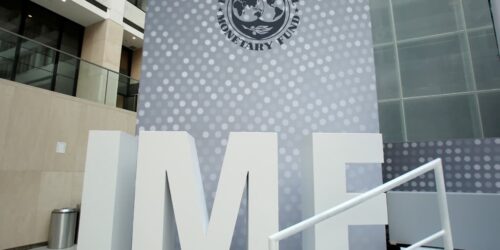When a country’s economy is in shambles, it can hardly afford more conditions from the lenders; that’s what Pakistan is facing in dealing with the IMF. Adviser to the PM Shaukat Tarin has once again outlined the necessity to comply with five prior conditions that Pakistan must fulfil before the IMF calls a meeting of its board of directors to approve the revival of its six-billion-dollar extended fund facility.
The IMF suspended the facility in April 2021, and since then Pakistan’s economy has been on tenterhooks. The statement by Tarin could not be more ambiguous as it says ‘all issues are settled’ and then in the same breath it informs us that there is a list of ‘five prior actions’ to complete. A look at these prior actions shows that on top of the list are the State Bank of Pakistan (Amendment) Bill, withdrawal of tax exemptions, and increase in energy tariffs. The government has partly met the condition pertaining to tariff adjustments by transferring the burden to energy consumers across the country.
The government has recently imposed nearly Rs1.4 per unit increase and by doing this has added to the miseries of common people who are already experiencing one of the worst periods of inflation in the country’s history. After this quite recent tariff increase, the government is planning yet another ‘adjustment’ in early 2022. Complete autonomy to the SBP means that any government of the day will not be able to regulate SBP policies, which in all likelihood the IMF itself will dictate. Withdrawal of tax exemptions will have both negative and positive ramifications.
It will slightly improve the government’s revenue base but will also reduce the benefits some sectors enjoy while contributing to the national economy. Though the IMF Board had planned to meet by the end of this year, the delay in implementing its conditions has prompted it to schedule the next meeting in Feb 2022. Before that, another major issue will be related to public-sector entities involved in circular debt, which has remained unmanageable. The adviser has asked such entities to announce dividends based on receivables on their accounts so that the government can divert its dividend share to clear payables. In this manner, the government is planning to reduce circular debt by Rs200 billion and clear the balance sheets of the entities. If the government manages to do that, it will raise global depository receipts (GDRs) in the international market. That said, the prognosis for the economy is not looking good as the depreciation of the rupee and the ever-increasing inflation is likely to haunt the country – at least in the near future.






